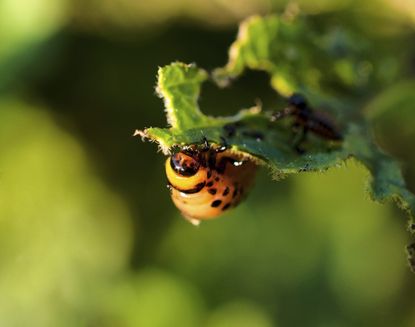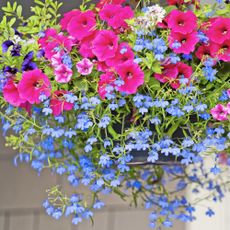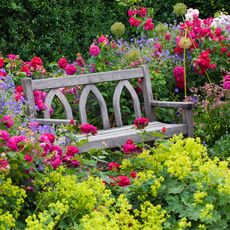Natural Home Pesticides: Organic Garden Pest Control


Organic garden pest control is on the minds of many gardeners these days. Natural home pesticides are not only easy to make, they are cheaper and safer than many products you can buy on store shelves. Let's take a look at some natural insect repellents you can make for the garden.
How to Make Natural Pesticide
The best way to make natural pesticides is to use natural products that you have laying around your house. Garden pests are repelled or killed by a surprising number of safe and natural products. Here are a few natural insect repellent recipes:
Organic Garden Pest Control Recipe #1
- 1 head of garlic
- 1 tablespoon (15 mL.) dish soap (Note: do not use a dish soap that contains bleach)
- 2 tablespoons (29.5 mL.) mineral or vegetable oil
- 2 cups (480 mL.) water
Peel the garlic cloves and puree the cloves along with the oil and water. Allow to sit over night and then strain the mixture. Add the soap and mix toughly. Pour into a spray bottle and use on pest infected plants.
Organic Garden Pest Control Recipe #2
- 1 tablespoon (15 mL.) vegetable oil
- 2 tablespoons (29.5 mL.) baking soda
- 1 teaspoon (5 mL.) dish soap or Murphy Oil (Note: do not use a dish soap that contains bleach)
- 2 quarts (1.9 L.) of water
Combine ingredients and pour into a spray bottle. Use this organic bug spray on your affected plants.
Organic Garden Pest Control Recipe #3
- 1/2 cup (120 mL.) chopped hot peppers (the hotter the better)
- 2 cups (480 mL.) water
- 2 tablespoons (29.5 mL.) dish soap (Note: do not use a dish soap that contains bleach)
Puree peppers and water. Let sit overnight. Strain carefully (this will burn your skin) and mix in dish soap. Pour into a spray bottle and spray this organic bug spray on your buggy plants. Natural home pesticides are exactly like chemical pesticides in one very important way. Organic bug spray for plants will kill any bug it comes in contact with, whether a pest bug or a beneficial bug. It is always best before mixing up any natural insect repellent recipes to think hard about how much damage pests are really doing to your garden. You may be doing more damage to your plants by killing the bugs than the bugs were doing to your plants. BEFORE USING ANY HOMEMADE MIX: It should be noted that anytime you use a home mix, you should always test it out on a small portion of the plant first to make sure that it will not harm the plant. Also, avoid using any bleach-based soaps or detergents on plants since this can be harmful to them. In addition, it is important that a home mixture never be applied to any plant on a hot or bright sunny day, as this will quickly lead to burning of the plant and its ultimate demise.
Gardening tips, videos, info and more delivered right to your inbox!
Sign up for the Gardening Know How newsletter today and receive a free download of our most popular eBook "How to Grow Delicious Tomatoes."

Heather Rhoades founded Gardening Know How in 2007. She holds degrees from Cleveland State University and Northern Kentucky University. She is an avid gardener with a passion for community, and is a recipient of the Master Gardeners of Ohio Lifetime Achievement Award.
-
 7 Best Trailing Plants For Hanging Baskets – Create A Delightful Summer Display
7 Best Trailing Plants For Hanging Baskets – Create A Delightful Summer DisplayHanging baskets are a staple of the summer patio. Use these plants to create trailing masterpieces that add beauty and elegance to your outdoor space.
By Melanie Griffiths
-
 Old-Fashioned Flowers And Plants That Will Transport You To Another Time
Old-Fashioned Flowers And Plants That Will Transport You To Another TimeFancy bringing some old world beauty and elegance to your space? These nine old-fashioned flowers can help you add a touch of nostalgia and romance
By Mary Ellen Ellis